DAC- Unveiling the Nakba: The Untold Story of Palestinian Displacement
In today's episode, we embark on a journey through the tumultuous history of the Nakba, a seminal event that reverberates through the Palestinian narrative, yet often remains marginalized in mainstream discourse. The Nakba, an Arabic term meaning "catastrophe," encapsulates the harrowing ordeal of mass displacement endured by Palestinians from their ancestral homes and lands during the Arab-Israeli War of 1948.
The genesis of the Nakba can be traced back to May 15, 1948, a day etched in the annals of history as Israel declared its independence, sparking a conflict that would shape the destiny of the Middle East for generations to come. This pivotal moment was not an isolated incident but rather the culmination of decades of geopolitical maneuvering, colonial legacies, and simmering tensions over control of the land known as Mandate Palestine.
Under British mandate since the aftermath of World War I, Palestine became a crucible of competing national aspirations. The Jewish Zionist movement, fueled by a fervent desire for a homeland, clashed with the indigenous Palestinian Arab population, igniting a struggle for self-determination amidst the backdrop of British withdrawal.
As British authority waned, the stage was set for a conflagration of unprecedented scale. Arab states, incensed by the prospect of a Jewish state on what they perceived as Arab land, launched a military intervention, plunging the region into chaos. The ensuing conflict witnessed a wave of violence, displacement, and dispossession, as hundreds of thousands of Palestinians were uprooted from their homes, fleeing in fear of their lives.
For Palestinians, the Nakba represents more than just a historical event; it embodies a collective trauma, a rupture in the fabric of their identity, and an enduring quest for justice and recognition. The right of return, enshrined in international law and affirmed by countless United Nations resolutions, remains a non-negotiable demand for Palestinians yearning to reclaim their lost heritage.
Yet, the road to reconciliation remains fraught with obstacles. Israel, emboldened by decades of military prowess and diplomatic support, steadfastly rejects the notion of a mass return, citing demographic, security, and logistical concerns. The prospect of integrating millions of Palestinian refugees into Israeli society is deemed untenable, raising fears of destabilization and demographic upheaval.
Moreover, the Nakba's significance extends far beyond the realm of geopolitics, permeating the cultural, social, and psychological fabric of Palestinian society. Through poetry, art, literature, and oral tradition, Palestinians have preserved the memory of their displacement, ensuring that the legacy of the Nakba endures as a testament to their resilience and resistance.
In the wake of the Oslo Accords and subsequent peace negotiations, the Nakba experienced a resurgence of interest in the 1990s, as Palestinians grappled with the fear that their right of return might be sacrificed on the altar of political expediency. The Oslo process, hailed as a beacon of hope for peace and reconciliation, proved to be a double-edged sword, raising hopes for statehood while leaving unresolved the core issues of refugees' rights and territorial sovereignty.
Today, as the Israeli-Palestinian conflict persists unabated, the Nakba serves as a poignant reminder of the unresolved injustices and unhealed wounds that continue to fester in the heart of the Middle East. Despite decades of diplomatic wrangling, peace remains elusive, and the dream of a just and lasting resolution to the conflict remains as distant as ever.
Join us as we delve into the complex tapestry of history, memory, and struggle that defines the Nakba, shedding light on a chapter of human suffering and resilience that demands recognition and remembrance in the quest for a more just and equitable future.
-
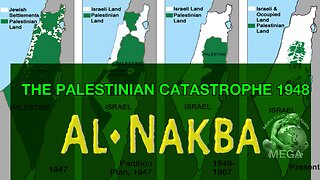 58:34
58:34
RAVries
6 months agoAl Nakba -- The Palestinian Catastrophe 1948 (1997)
1.05K6 -
 2:38
2:38
DoloresPeers
1 year agoPalestinian Man Describes Surviving The #nakba #nakba75 #palestine
6 -
 19:53
19:53
The Memory Hole
3 months agoCIA Archives: Arab-Israeli Conflict (1974)
1.42K -
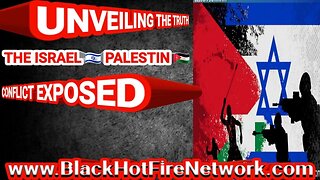 2:06:51
2:06:51
BlackHotFireNetwork
7 months ago"Unveiling the Truth: The Israel-Palestine Conflict Exposed"
141 -
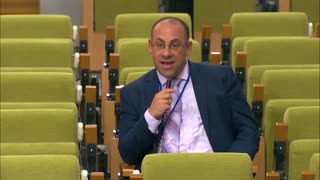 24:12
24:12
No wonder Aliens just drive by
7 months agoHuman rights in Palestinian occupied territories: UN Special Rapporteur's Briefing
105 -
 2:07:19
2:07:19
BlackHotFireNetwork
7 months ago"Unveiling the Truth: The Israel-Palestine Conflict Exposed"
141 -
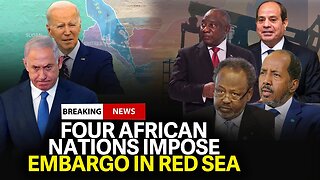 10:01
10:01
ProgressiveTruthSeekers
4 months agoFour African Nations Block Israel's Access to Red Sea - Panic in Israel
1.54K -
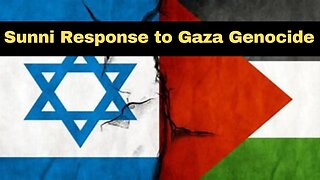 9:58
9:58
Dr. Joe Ligato
6 months agoSunni Responses to Palestinian Genocide: Exploring Muslim Solidarity
116 -
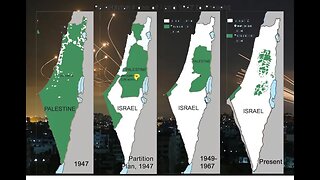 8:03
8:03
Republic Arise
6 months agoHistory of Arab Colonization vs. Modern Decolonization Narrative | Complete
15 -
 19:15
19:15
No wonder Aliens just drive by
6 months agoIs it anti-Semetic to stand with Palestine? Let's discuss! Redacted.
2341